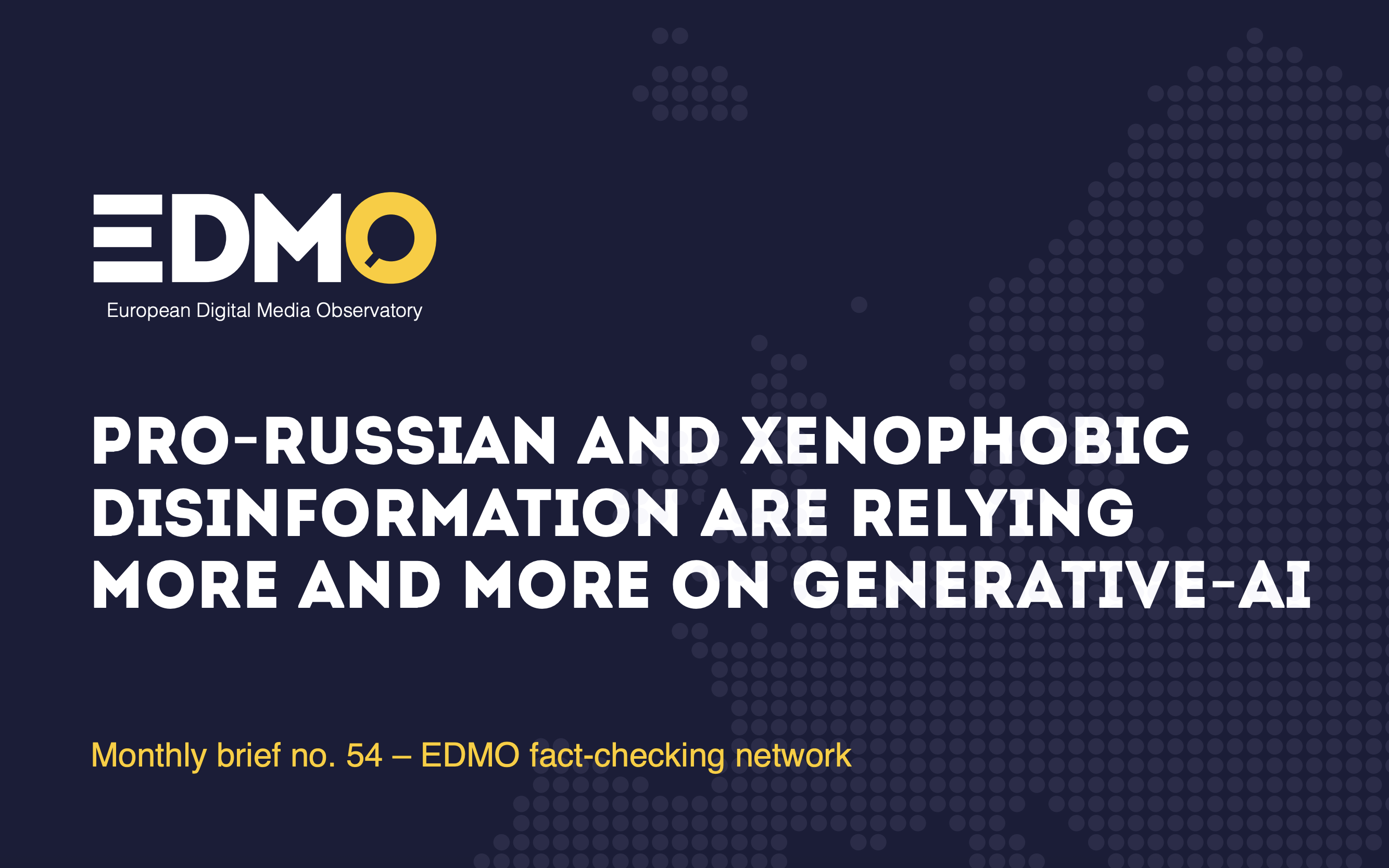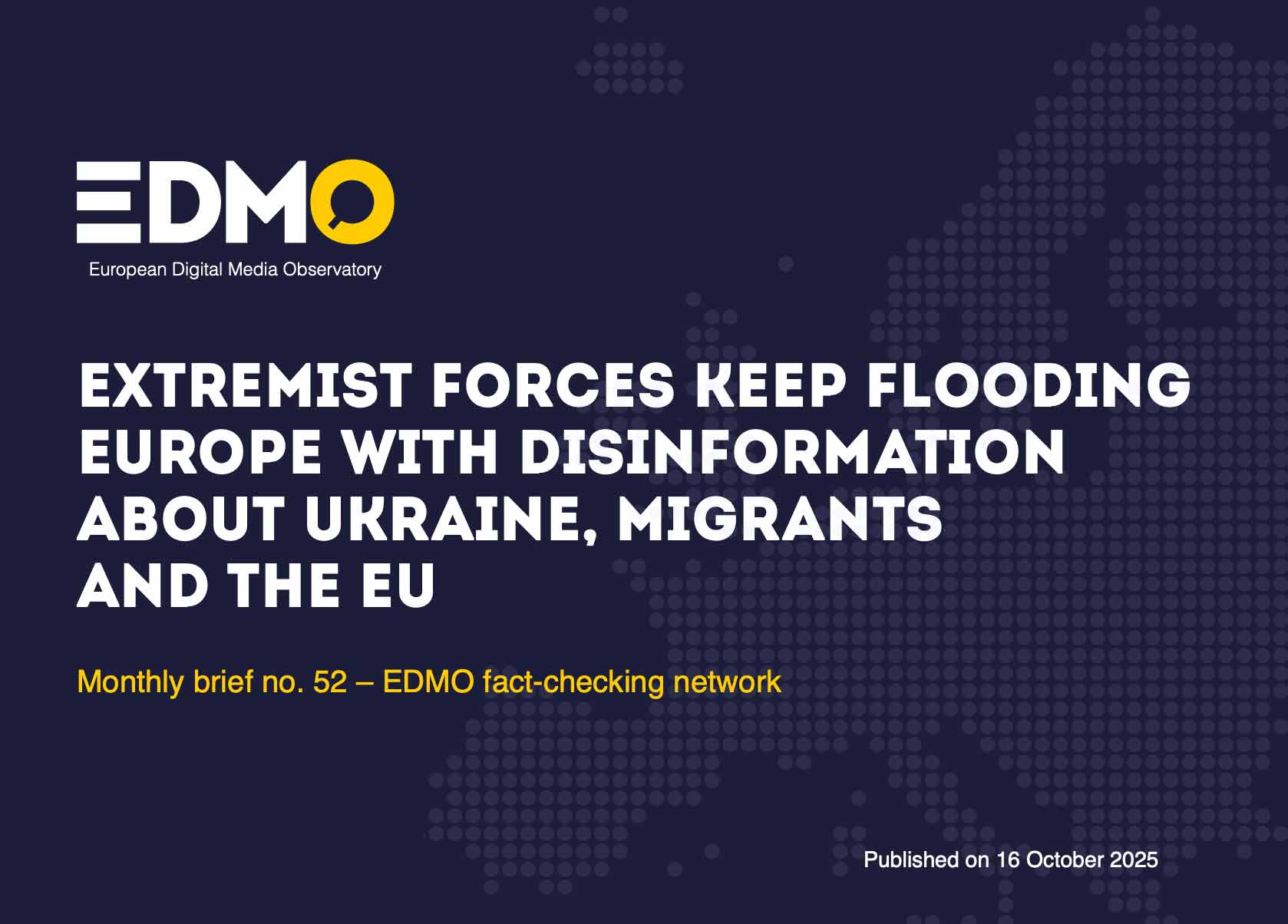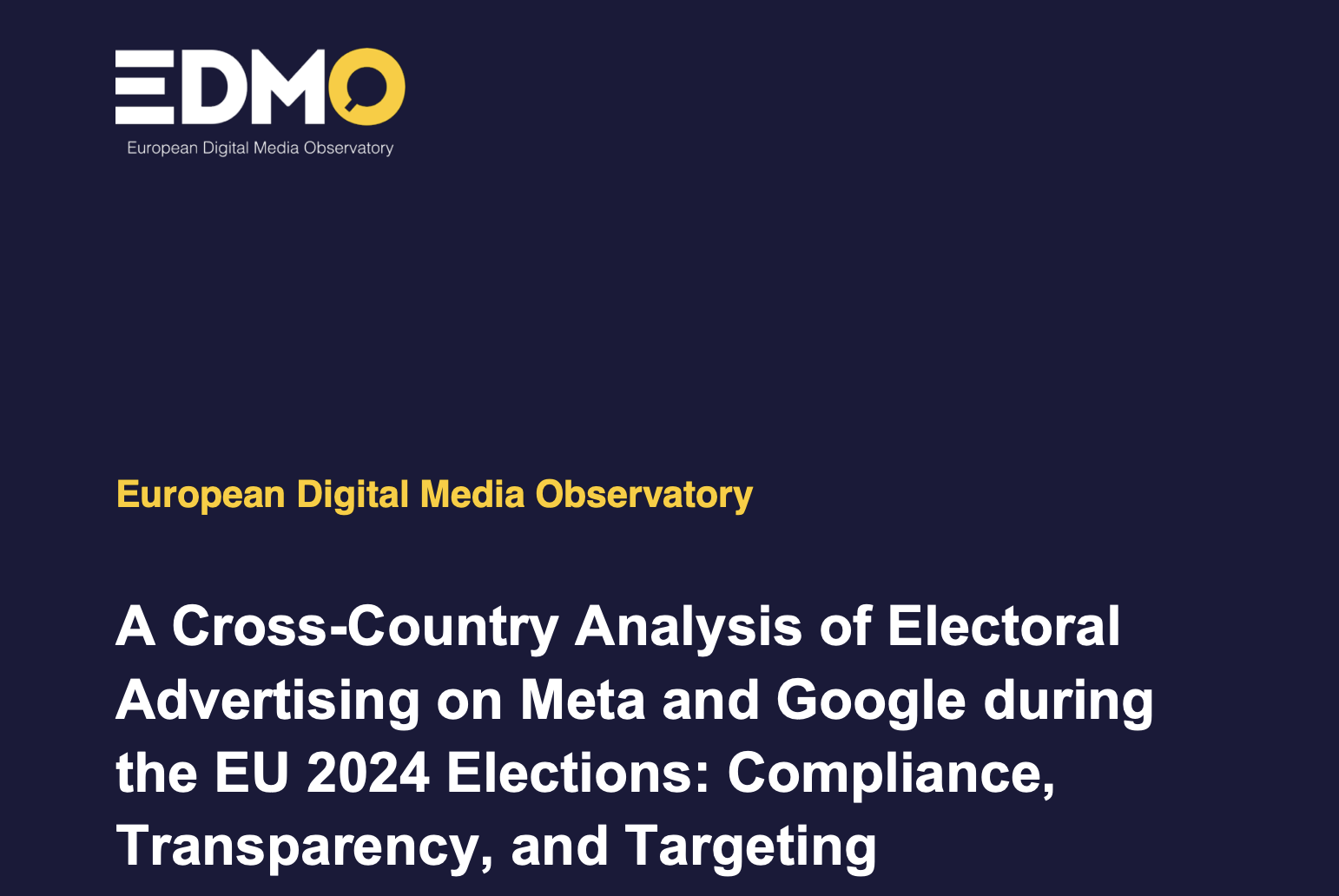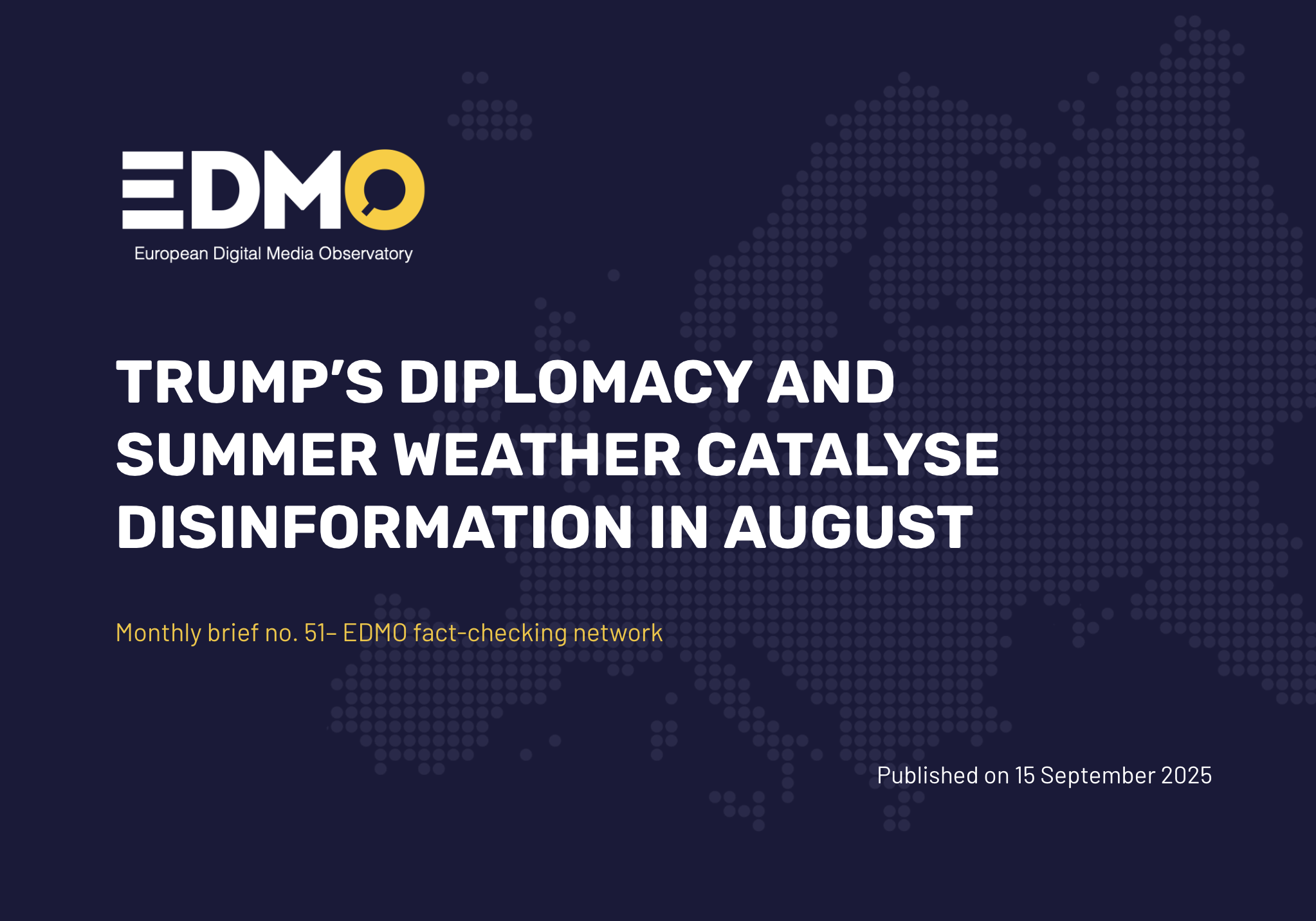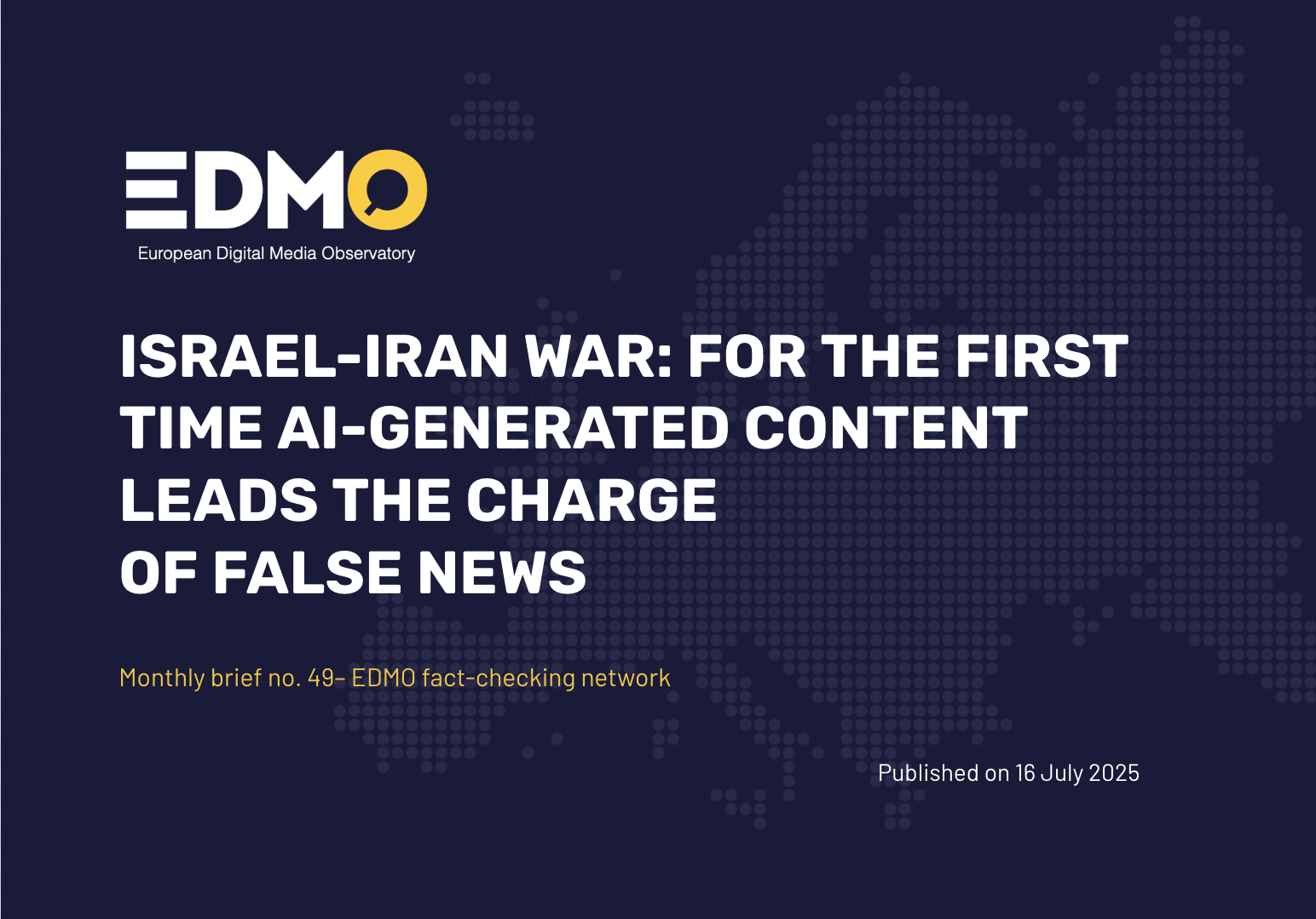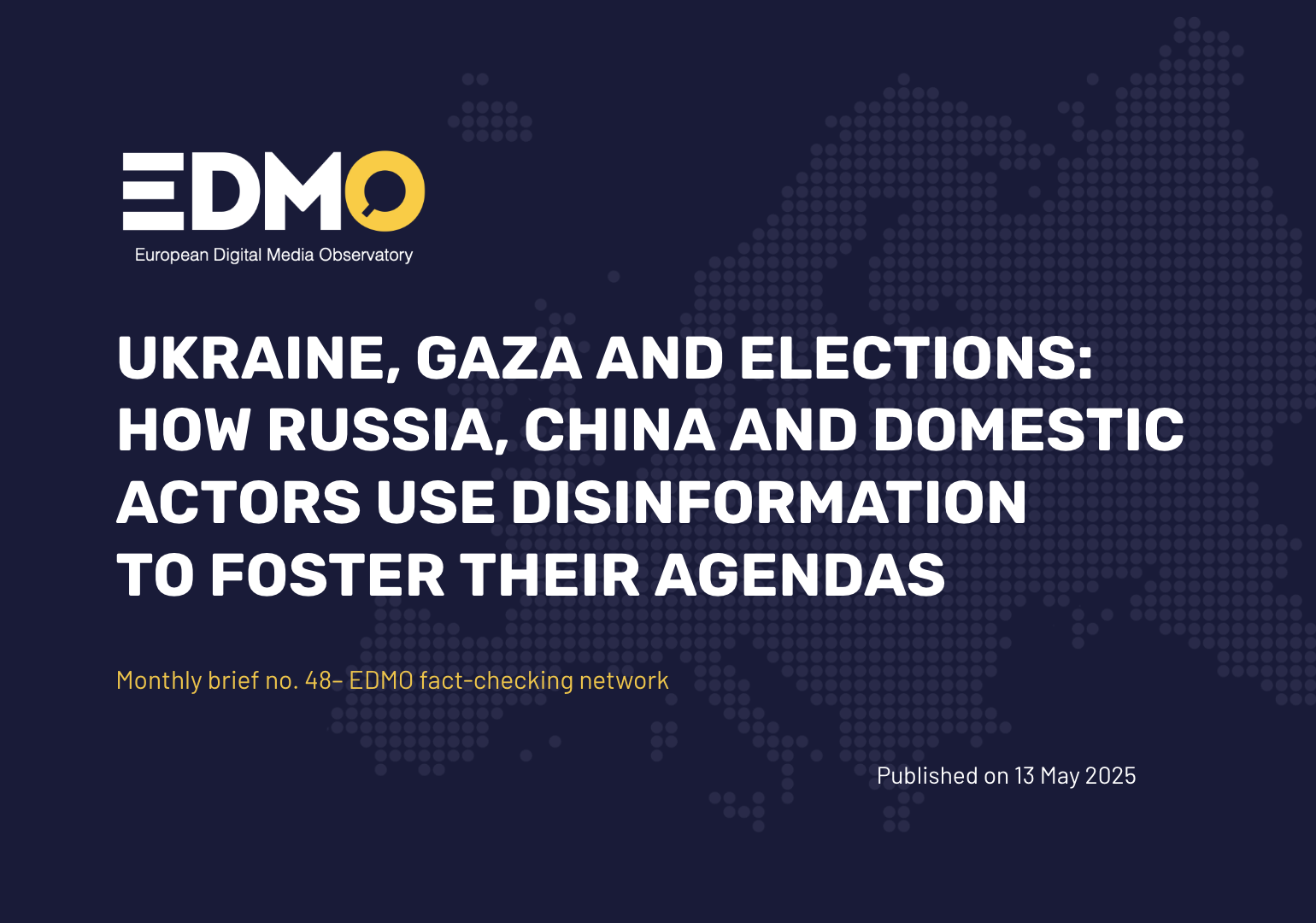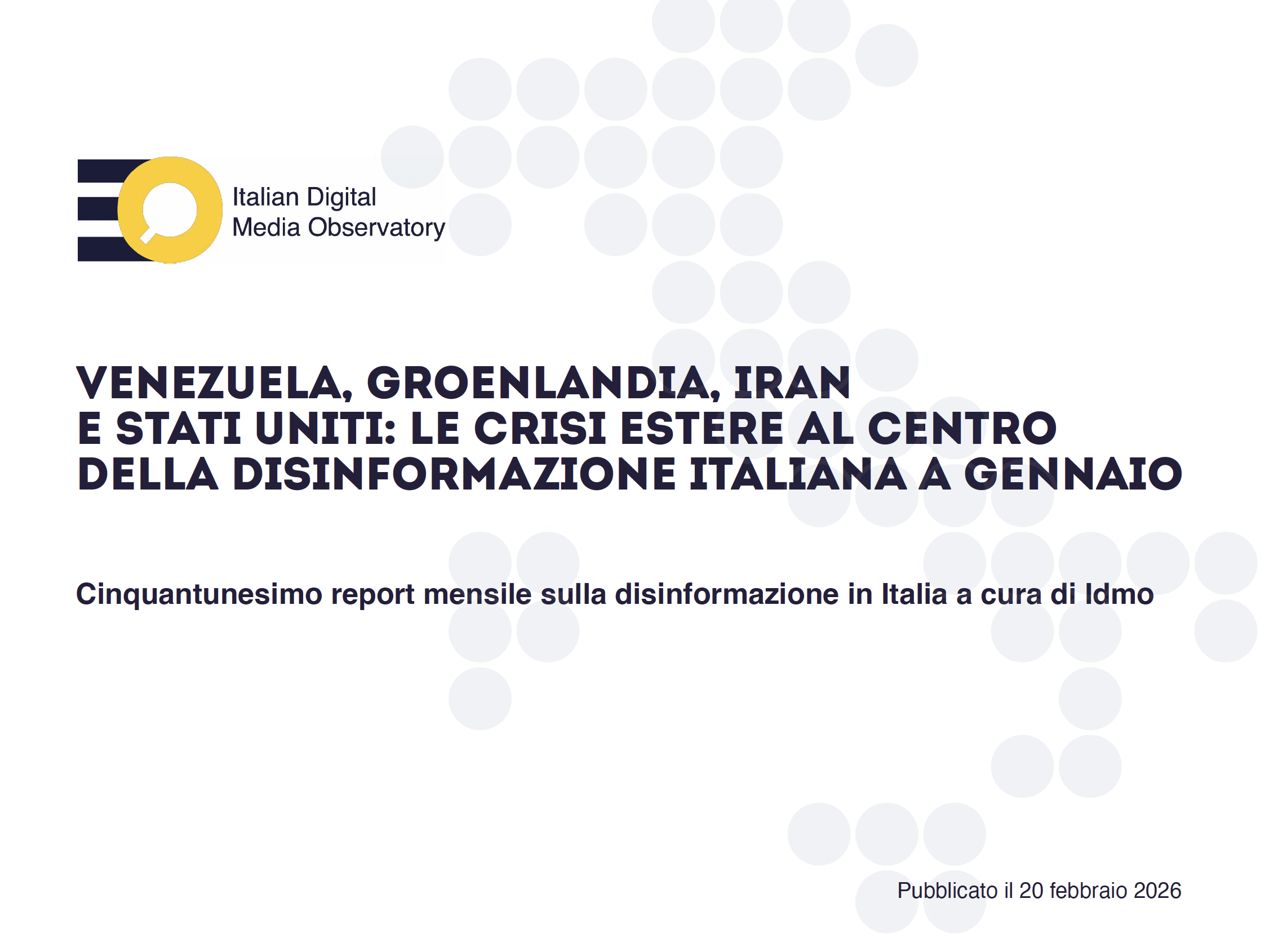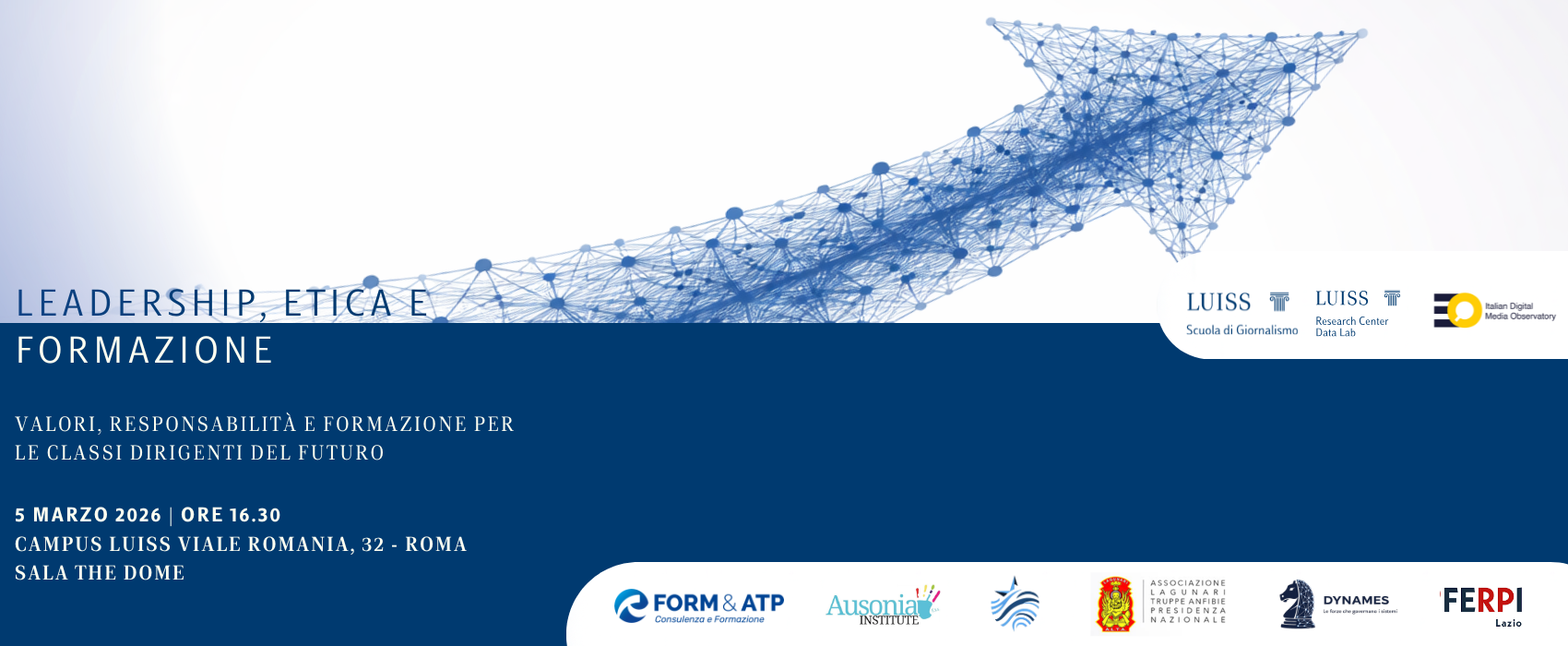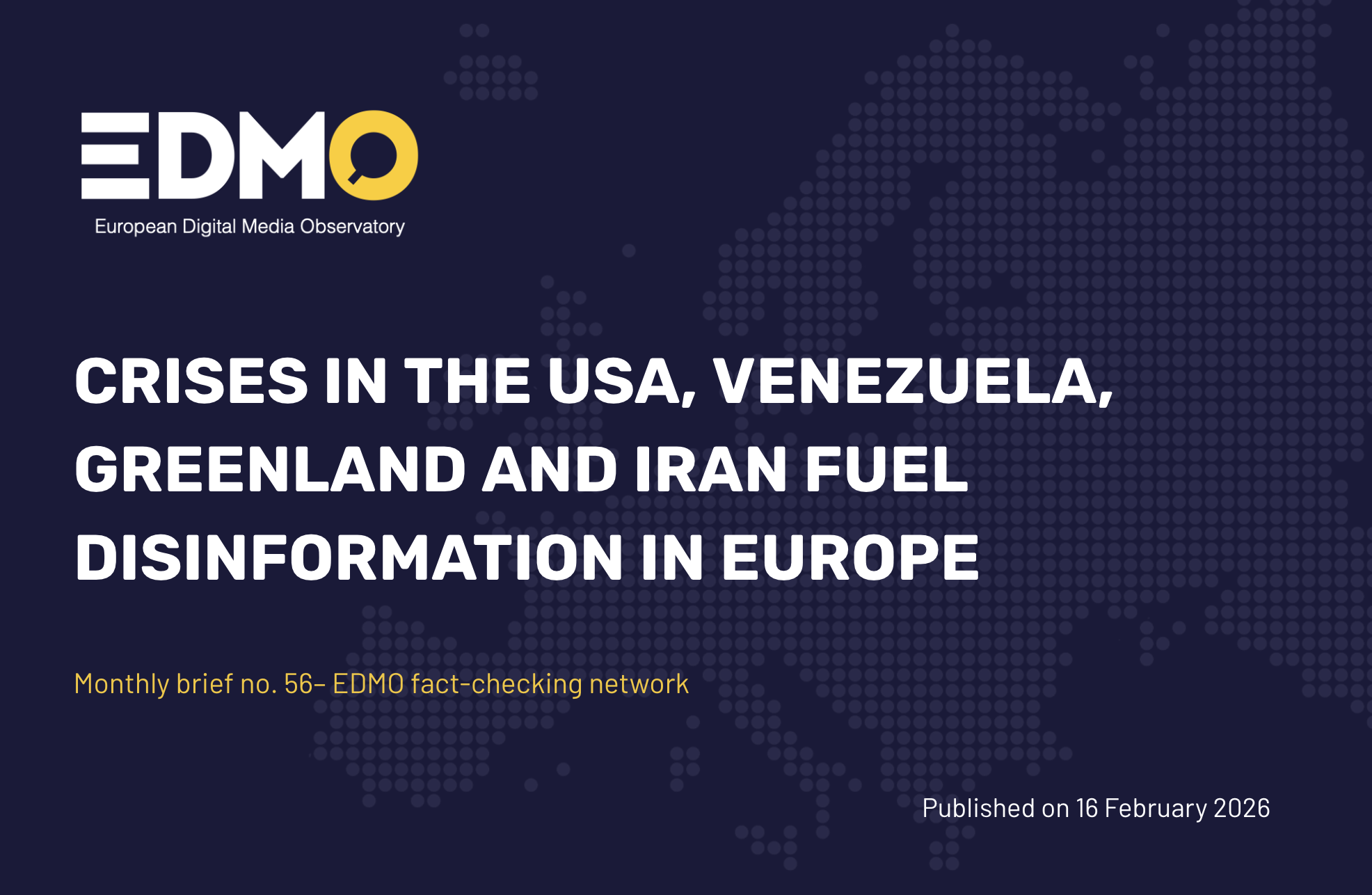
Crises in the Usa, Venezuela, Greenland and Iran fuel disinformation in Europe
THE EU IS THE MOST TARGETED TOPIC IN JANUARY The 34 organizations* part of the EDMO fact-checking network that contributed to this brief published a total of 1.633 fact-checking articles in January 2026. Out of these articles, 112 (7%) focused on disinformation related to the EU; 96 (6%) on Ukraine-related disinformation; 88 (5%) on disinformation related to immigration; 59 (4%) on climate change-related disinformation; 25 (2%) on COVID-19-related disinformation; 12 (1%) on the crisis in Gaza; and 12 (1%) on disinformation about LGBTQ+ and gender issues. During the month of January, the most targeted topic by disinformation was the European Union. Meanwhile false news related to the war in Ukraine and to immigration decreased respectively by three and four percentage points. The share of disinformation on the other topics monitored by these briefs remained stable, with only minor fluctuations. DISINFORMATION ON THE EUROPEAN UNIONThe European Union is a recurring target



